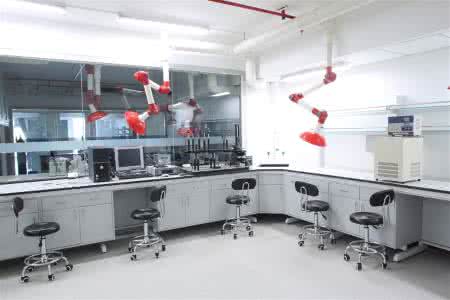(单词翻译:单击)
听力文本
This is Scientific American — 60-Second Science. I'm Steve Mirsky.
Got a minute?
"We have increasing doubts about this evidence, but we don't feel yet that we have the scientific knowledge and basis to exclude it altogether."
Jed Rakoff, United States District Judge for the Southern District of New York. He spoke about forensic evidence—and the need for it to actually be based in science—at the annual meeting of the American Association for the Advancement of Science in Boston on February 18th.
In 2009 the National Academy of Sciences issued a report critical of a lot of the forensic evidence in the courtroom.
"Most fundamentally...the report said that what was really lacking was testing and research. And thus they questioned whether any of this could be called science and they also questioned whether it was really that accurate...

But forensic evidence is still widely admitted, even when the science behind it may be lacking.
I think courts continue, despite their doubts, to admit this evidence...and that is still the feeling...that, eh, it's still better than nothing, it's still useful evidence, it has some degree of objectivity that's not present in much lay testimony. And therefore it is useful. The problem of course is it comes heralded as science, and that gives it a weight that is probably disproportionate.
I had a case, this was before the National Academy report, but it's sort of illustrative of what I'm talking about...United States versus Glynn. In that case, the government put on a tool-mark expert to testify that the markings on the shell that had been found at the scene of the crime matched the markings inside the barrel of the gun that had been found under the defendant's bed...and I asked him, for example, what's your error rate and what's the error rate of this methodology that you're using. And he said zero. And I said zero? And he said yes. And I said how can it be zero. And he said well, in every case I've testified, the guy's been convicted."
Thanks for the minute for Scientific American — 60-Second Science Science. I'm Steve Mirsky.
参考译文
这里是科学美国人——60秒科学。我是史蒂夫·米尔斯基。
有一分钟时间吗?
“虽然我们对这种证据的怀疑越来越多,但是我们认为,目前我们还没有能完全排除这种证据的科学知识和原理。”
杰德·拉科夫是纽约南区法院的美国地区法官。他就法庭证据及其基于科学的需要发表了讲话,这段讲话发表在2月18日美国波士顿科学促进会的年度会议上。
2009年,美国国家科学院发表了一份报告,对法庭上的大量法庭证据进行了批评。
“最根本的是,报告指出,法庭证据缺少测试和研究。因此,他们质疑这些证据是否可以称为科学、是否准确。
但是法庭证据仍被广泛承认,即使其可能缺少科学根据。
我认为,虽然存在质疑,但是法庭仍会继续承认这些证据,现在人们依然认为,有证据总比没有强,他们依然认为这些是有用的证据,存在某种程度的客观性,而这种客观性是大部分非专业证词所缺少的。所以这种证据是有用的。当然,问题在于法庭证词被视为科学,同时被赋予了可能并不恰当的重要性。
在美国国家科学院的报告发表以前,我接触过一个案子,这个案子可以说明我现在在谈论的情况,这个案子就是美国政府诉格林案。在那个案子中,美国政府派了一名工具痕迹专家来证实,在犯罪现场发现的弹壳上的痕迹与被告床下枪筒内的痕迹一致。我问了那名专家几个问题,比如,你的错误率是多少,你现在所使用方法的错误率是多少?他回答说错误率为零。我又问他,错误率是零?他说是零。我说,怎么可能是零呢?他说他作证的每件案子,被告都被定罪了。”
谢谢大家收听科学美国人——60秒科学。我是史蒂夫·米尔斯基。
译文为可可英语翻译,未经授权请勿转载!
重点讲解
重点讲解:
1. be critical of 批评的;挑剔的;
例句:The inquiry was critical of her work.
该项调查对她的工作提出了批评。
2. continue to do sth. 继续;持续;
例句:There's no room for complacency; we must continue to try to improve.
我们不能自满,必须继续努力改进。
3. of course 当然,自然;
例句:He will of course say yes to my proposal.
他一定会同意我的建议的。


